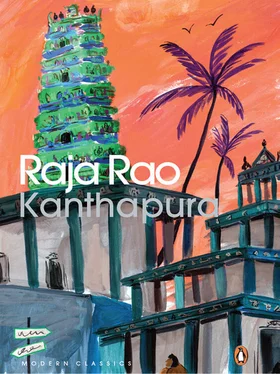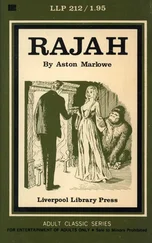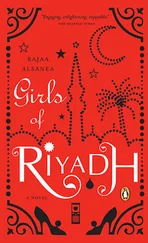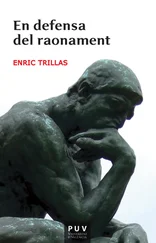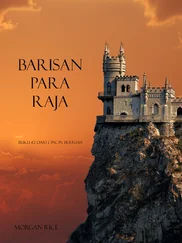Raja Rao - Kanthapura
Здесь есть возможность читать онлайн «Raja Rao - Kanthapura» весь текст электронной книги совершенно бесплатно (целиком полную версию без сокращений). В некоторых случаях можно слушать аудио, скачать через торрент в формате fb2 и присутствует краткое содержание. Год выпуска: 2014, Издательство: Penguin, Жанр: Классическая проза, на английском языке. Описание произведения, (предисловие) а так же отзывы посетителей доступны на портале библиотеки ЛибКат.
- Название:Kanthapura
- Автор:
- Издательство:Penguin
- Жанр:
- Год:2014
- ISBN:нет данных
- Рейтинг книги:3 / 5. Голосов: 1
-
Избранное:Добавить в избранное
- Отзывы:
-
Ваша оценка:
- 60
- 1
- 2
- 3
- 4
- 5
Kanthapura: краткое содержание, описание и аннотация
Предлагаем к чтению аннотацию, описание, краткое содержание или предисловие (зависит от того, что написал сам автор книги «Kanthapura»). Если вы не нашли необходимую информацию о книге — напишите в комментариях, мы постараемся отыскать её.
Kanthapura — читать онлайн бесплатно полную книгу (весь текст) целиком
Ниже представлен текст книги, разбитый по страницам. Система сохранения места последней прочитанной страницы, позволяет с удобством читать онлайн бесплатно книгу «Kanthapura», без необходимости каждый раз заново искать на чём Вы остановились. Поставьте закладку, и сможете в любой момент перейти на страницу, на которой закончили чтение.
Интервал:
Закладка:
And when the Monday evening came, we knew it would be the morrow, it would be at five the next morning that the Mahatma would go out to the sea and manufacture salt and bring it home, and we could not sleep and we could not wake, and all the night we heard the sea conches cry like the announcing cry of the Belur conch that goes trailing its ‘om’ through the winkless night, and people wake and music plays, and with torch and hymn is it sought, and with torch and hymn is it brought from the river below to the temple above, and people lie many a night in fearful fervour for some pointing finger of the heavens — so did we lie all through that wakeful night, but no shadow ever flew across the stars, and no dreamer ever woke with a pointing dream. And when the morning was still on the other side of the dark we rose one by one, for we would bathe in the river like the Mahatma, at the very hour, at the very minute. Moorthy and Rangamma were at the river already, and just as the morning was colouring the hills of the Skeffington Coffee Estate, we all said — men, women, and boys, Seenu, Moorthy, Vasu, Nanju, Ramu, Subbu, Govinda—’Ganga, Jumna, Saraswathi,’ and rising up we dipped again and cried out, ‘Mahatma Gandhi ki jai!’ And Priest Rangappa, coming up, says, ‘Oh, you are all earlier than ever today, hmm?’ and we say, ‘Today the Mahatma manufactures salt with his own hands, Rangappa, and we dip with him,’ and he laughs and says, ‘Is that so?’, and we knew why he said this, for as everybody knew now, Bhatta had been writing to him, and Bhatta had asked him to gather the grains and the hay and the money, and we said, ‘Well, another one is lost for us!’
And when we had washed and beaten our clothes, we sat for our meditation and we walked back home, with something new within our hearts. And for the midday meal we gave our men paysam and chitranna as though it were Gauri’s festival, and the men were happy. Why would they not be? And in the evening there was bhajan.
And the next day the white papers told us the Mahatma had taken a handful of salt after his ablutions, and he had brought it home, and then everybody went to the sea to prepare salt, and cartloads and cartloads of it began to be brought back and distributed from house to house with music and clapping of hands. The police do not know what to do, and suddenly they fall on a cartload and the peasants say, ‘Take it! Take it!’ but the police say, ‘You have broken the law,’ and the men say, ‘But we have broken it long ago, and the Mahatma broke it first,’ but the police do not know what to answer, and they drag the men to prison, they drag them and spit on them and would have beaten them had not many and many a white man come to see the pilgrimage of the Mahatma. And so day after day men go out to the sea to make salt, and day after day men are beaten back and put into prison, and yet village after village sends its women and men, and village after village grows empty, for the call of the Mahatma had sung in their hearts, and they were for the Mahatma and not for the Government.
And we said to Moorthy, ‘And when shall we start to march like the Mahatma?’ and Moorthy says, ‘Why, as soon as I get the orders from the Karwar Congress committee,’ and we say, ‘But ask them to send it soon, for ten heads make a herd and one head a cow,’ and Moorthy says, ‘So it is, but I am a small man in the Congress, and I wait for the orders.’ Then Rangamma says, ‘If you want to fight, sisters, let us practise the drill more often, like the men,’ and we say, ‘Of course! Of course!’ and now we stand in Rangamma’s courtyard from the time the hands are washed till the time the cattle come home, and we stand straight and hold our hands against our breasts, and Rangamma says, ‘Now, imagine the policemen are beating you, and you shall not budge a finger’s length,’ and we close our eyes and we imagine Badè Khan after Badè Khan, short, bearded, lip-smacking, smoking, spitting, booted Badè Khan, and as we begin to imagine them, we see them rise and become bigger and bigger in the sunshine, and we feel the lathis bang on us, and the bangles break and the hair tear and the lips split, and we say, ‘Nay, nay,’ and we cannot bear it, and Dorè’s wife Sundri begins to cry out and she says she is frightened; but Ratna, who is by her, says, ‘Be strong, sister. When your husband beats you, you do not hit back, do you? You only grumble and weep. The policeman’s beating are the like!’ and we say, ‘So they are.’ And we begin to get more and more familiar with it. And we say that in a week, in ten days’ time, Moorthy will say, ‘March!’ and we shall march behind him, and we shall do this and we shall do that, and now when we meet Badè Khan our eyes seek his lathi and we find it is smaller than we had imagined, and his shoes have less nails, and his lips are less thick. Rangamma says, ‘Send out rays of harmony,’ and we send out rays of harmony, and we say, ‘No, it will not be so bad after all,’ and we say too, ‘And there is the Mahatma,’ and his eyes, benign like old Ramakrishnayya’s, look down on us with strength and affection. Nanjamma says, ‘No, sister, I do not imagine the Mahatma like a man or a god, but like the Sahyadri mountains, blue, high, wide, and the rock of the evening that catches the light of the setting sun,’ and I say to myself, ‘That’s what he is. High and yet seeable, firm and yet blue with dusk, and as the pilgrims march up the winding path, march through prickles and boulders, thickets and streams, so shall we march up to the top, we shall thump up and up to the top, and elephants may have left their traces, and the wildfire go blazing around us, and yet we shall know on the top is the temple, and that temple is bright and immense, and when the night is slept through, the gong will sound over the pilgrim lines for the dawn procession of the Mountain God’; and so from that day we said we shall call the Mahatma ‘The Mountain’, and we say we are the pilgrims of the Mountain, and whatever thunder may tear through the heavens or the monsoons pour over it, it is always the blue mountain at dusk.
‘And what shall we call Moorthy?’ said Radhamma.
‘Why, the Small Mountain,’ said Rangamma, and we all said, ‘That is it,’ and so from that day we knew there were the Small Mountain and the Big Mountain to protect us.
The Ganges, sister, is born on the snows of high Kailas.
Oh, but when will it come, the call of the Big Mountain, Siva, Siva?
14
The call of the Big Mountain never came, for one morning, as we were returning from the river, Seenu comes and says the Congress committee has sent a messenger on bicycle to say the Mahatma was arrested, and we ask, ‘And when shall we begin, when?’ and he answers, ‘Next week, sister,’ and when we are back home we see Moorthy and Rangè Gowda and Rangamma and Pariah Rachanna all gathered before the temple, and Moorthy seemed to be all speech and Rangè Gowda all gestures, and we ask ourselves, ‘What are they deciding, what?’ And children gather round them, and one comes from this street, and one from that and there was quite a fair about, and when the kitchen fire is hardly lit, the temple bell goes ringing in the street, and we rush to the veranda and hear Seenu crying out, ‘The Mahatma is arrested! the Mahatma! — and next week there will be a Don’t-touch-the-Government campaign. And today everyone will fast, and the Congress panchayat will meet, and in the evening bhajan.’
And we said, ‘That is fine,’ and we poured water over our fires, and we drank a glass of curds and we dozed the whole afternoon, and every minute people could be heard hurrying about anxious and silent, and when Vasudev is passing by, Nanjamma says, ‘And the Skeffington people, are they with us?’ and Vasudev says, ‘Of course, of course, but not many.’ Then there is the sound of Moorthy speaking and of Rangè Gowda shouting, and Pariah Rachanna whispering this and Rangamma saying that, and bicycle after bicycle comes from the city, bicycle after bicycle carrying the orders to the Congress panchayat, and the Volunteers go straight to Rangamma’s veranda, and they talk to Moorthy. Then for a while there is silence, but Rangè Gowda starts again and then Rachanna and then Rangamma.
Читать дальшеИнтервал:
Закладка:
Похожие книги на «Kanthapura»
Представляем Вашему вниманию похожие книги на «Kanthapura» списком для выбора. Мы отобрали схожую по названию и смыслу литературу в надежде предоставить читателям больше вариантов отыскать новые, интересные, ещё непрочитанные произведения.
Обсуждение, отзывы о книге «Kanthapura» и просто собственные мнения читателей. Оставьте ваши комментарии, напишите, что Вы думаете о произведении, его смысле или главных героях. Укажите что конкретно понравилось, а что нет, и почему Вы так считаете.
